





The Alabama Supreme Court’s recent decision regarding frozen embryos has sent shockwaves through the medical community, raising complex legal questions and causing disruption in IVF services. With the ruling equating frozen embryos to legally recognized children and imposing liability for their destruction, several clinics in Alabama have opted to temporarily suspend certain IVF procedures, citing legal uncertainties as their primary concern. Several other states are considering fetal personhood legislation, adding to the uncertainty of what IVF and surrogacy will look like in the future.
SurrogateFirst’s survey provides unique insights on the topic that serve the surrogacy community of intended parents and surrogates alike. SurrogateFirst strives to be the knowledge leader in the surrogacy community and to assist in safer and more successful journeys for all.
All data and insights were captured via an online survey that was active from April 8, 2024, to April 12, 2024 with an overall sample size / n = 145 completions. The respondents self identified as the following: 33 surrogates, 46 intended parents, and 66 neither surrogates or intended parents.
Several states are considering fetal personhood bills that would define an embryo as a person and would include penalties for the death of an “unborn person.”
Intended parents are the most concerned about fetal personhood bills with 54% “Extremely Concerned”. Furthermore, 98% of those who responded had some level of concern, clearly indicating significant apprehension about the potential consequences of such legislation.
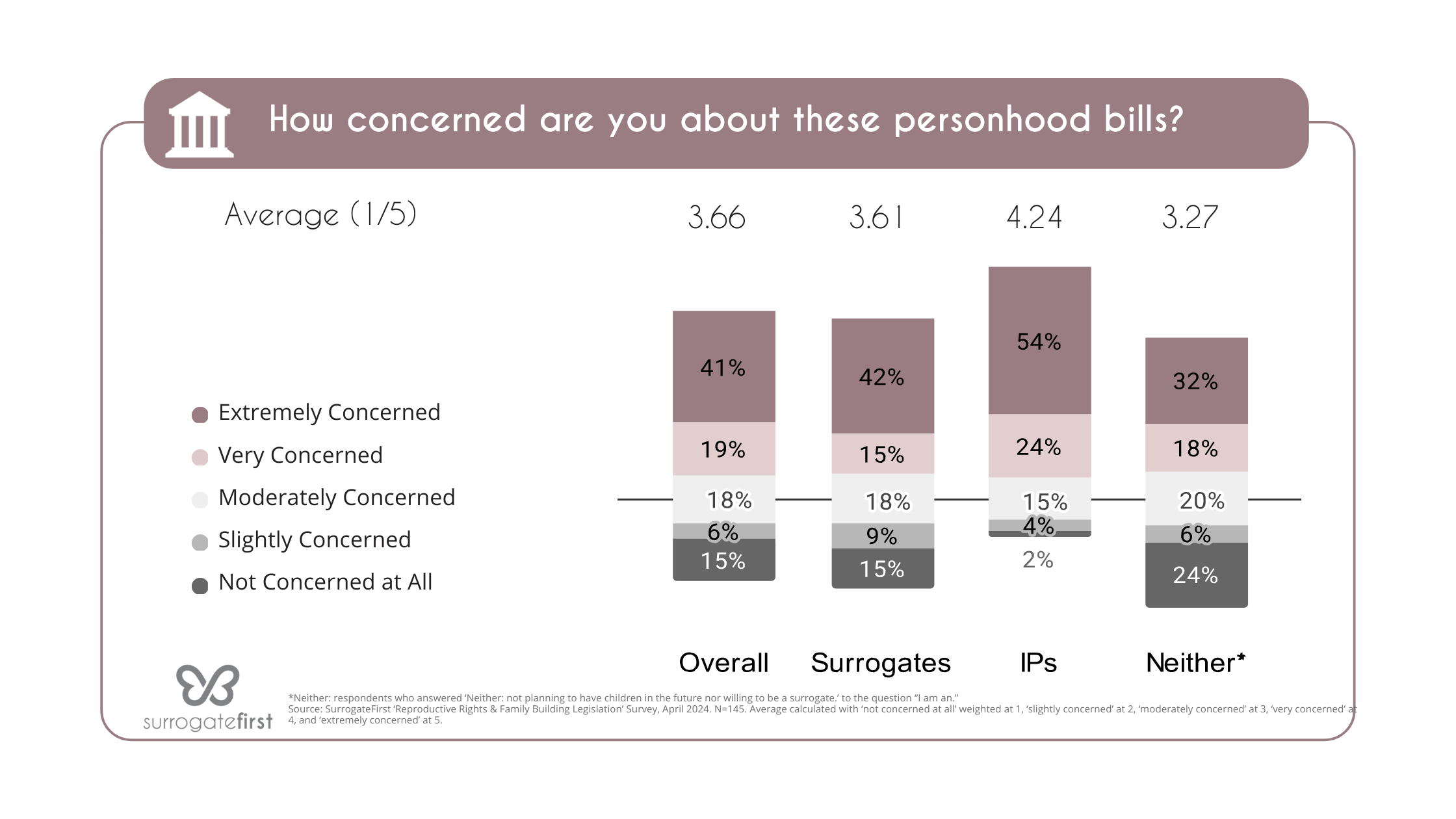
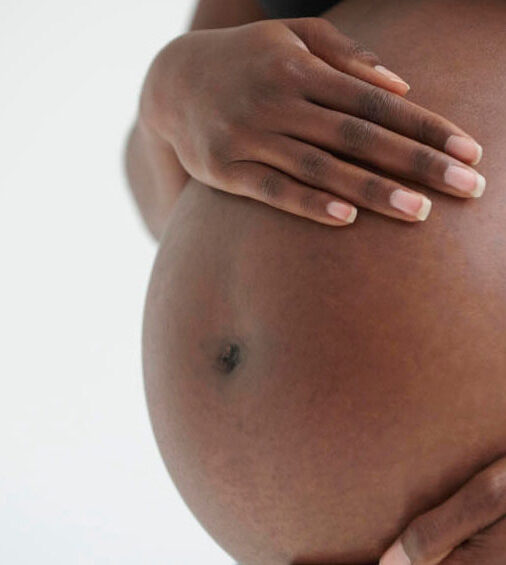
Surrogates and intended parents are the most negatively impacted by fetal personhood bills on IVF treatments and surrogacy reflecting the heightened stakes for those directly involved in these processes.
Surrogates express the highest level of concern, with 55% being “Extremely Concerned,” which is 3.6X more than the “Neither” group who are less directly impacted.
"They don’t affect me, so it’s not that concerning”
Neither surrogate nor intended parent
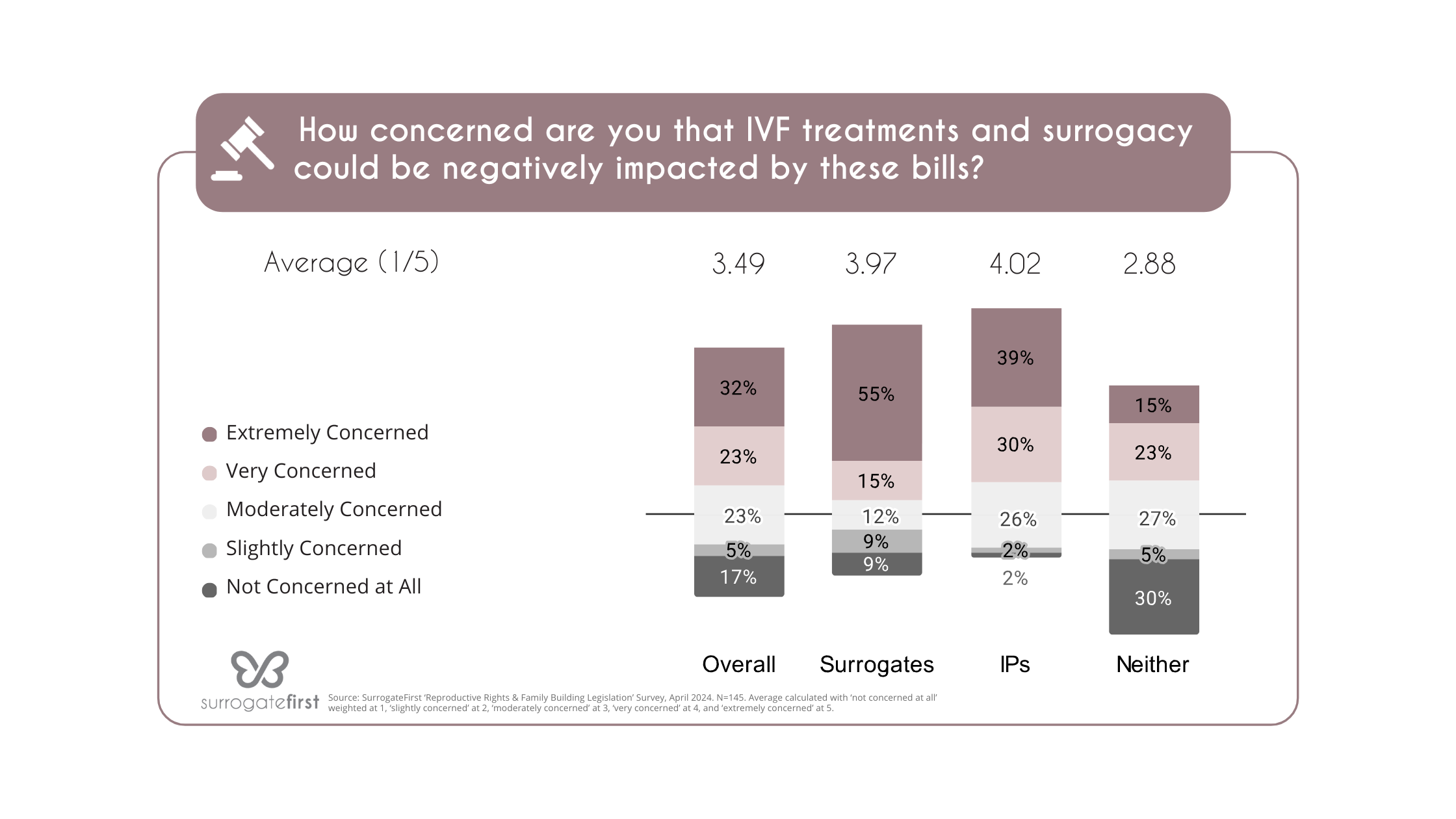
PERSONHOOD BILLS IMPACT SAME SEX COUPLES MORE
Same sex couples are the most concerned about personhood bills, with 50% expressing they are “Extremely Concerned” about the negative impact of personhood bills, compared to 41% of those in traditional relationships.
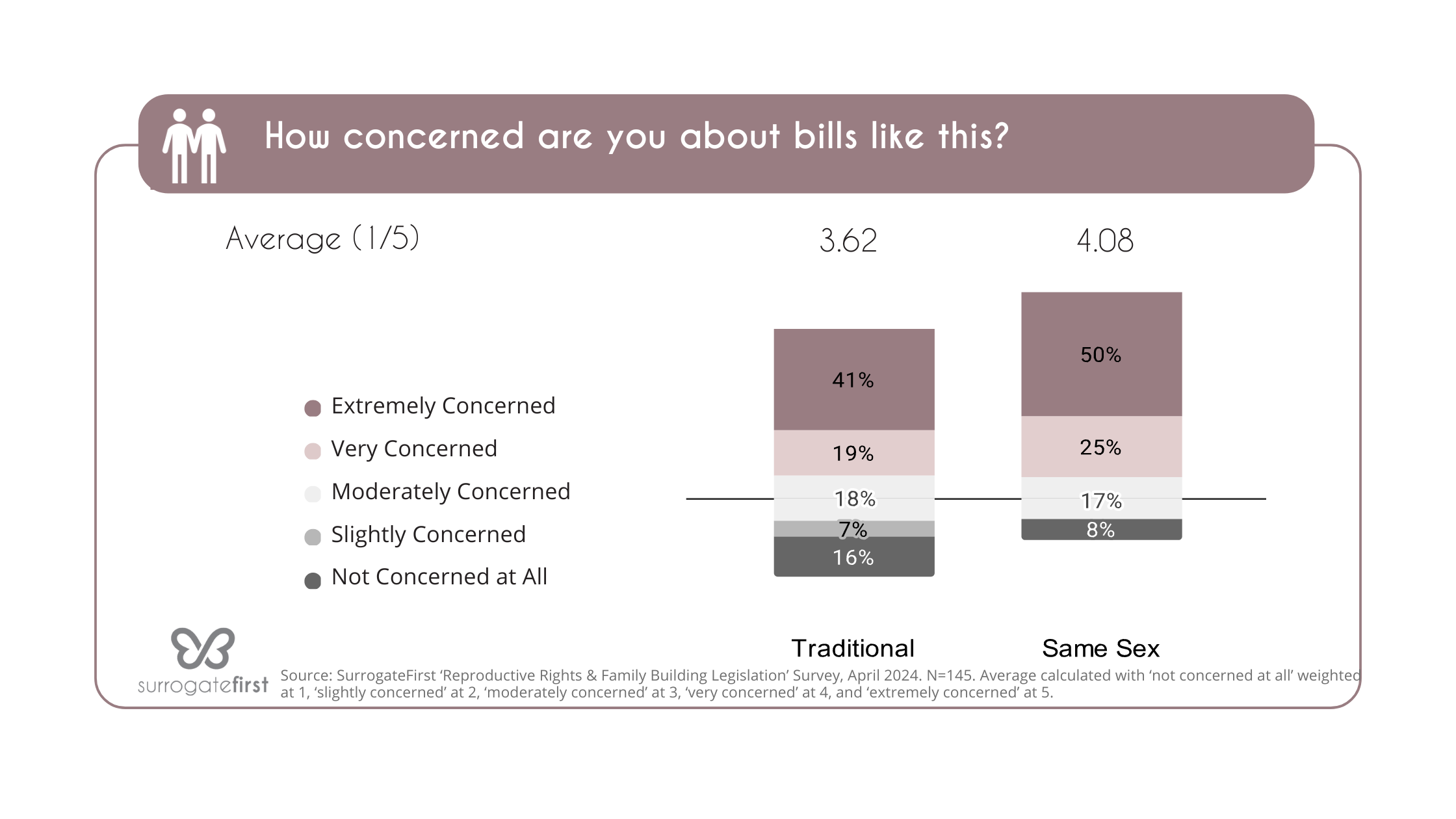
Additionally, 67% of same sex couples are “Extremely Concerned” about the impact on IVF treatments and surrogacy compared to 29% of traditional couples. Many same sex couples rely on IVF and surrogacy as the only option to start a family.
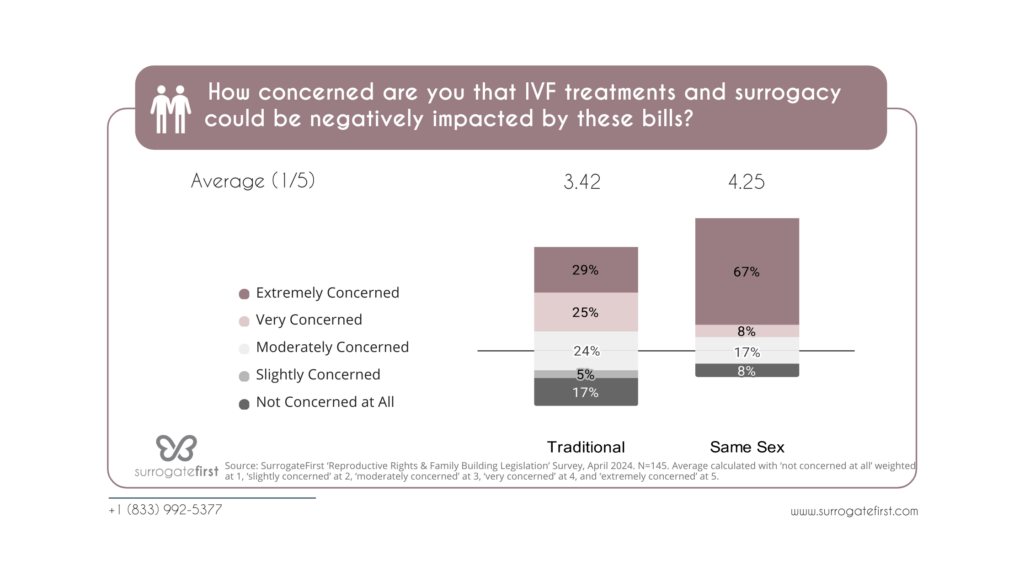
Among surrogates surveyed, the majority remain resolute in their decision to pursue surrogacy, despite the existence of recent rulings and bills.
A significant 68% of surrogates express unwavering determination to assist in starting a family regardless of any obstacles encountered, while only a minority (4%) indicate that they are proceeding with caution.
Notably, none report temporarily or permanently delaying their decision due to these rulings, highlighting a steadfast commitment to their intended path.
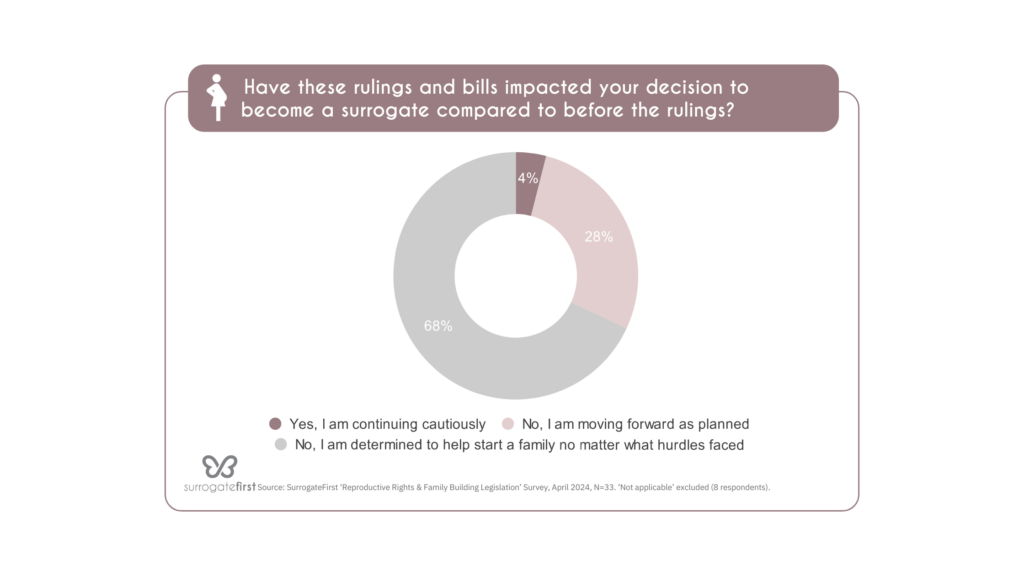
The recent rulings heightened surrogates desire to carry a child for others with the majority, 54%, reporting “No Impact” on their motivation to become a surrogate, suggesting a resilient commitment to their decision regardless of external factors. Additionally, 36% of surrogates note that new legislation has “Strongly Increased” their motivation to become surrogates
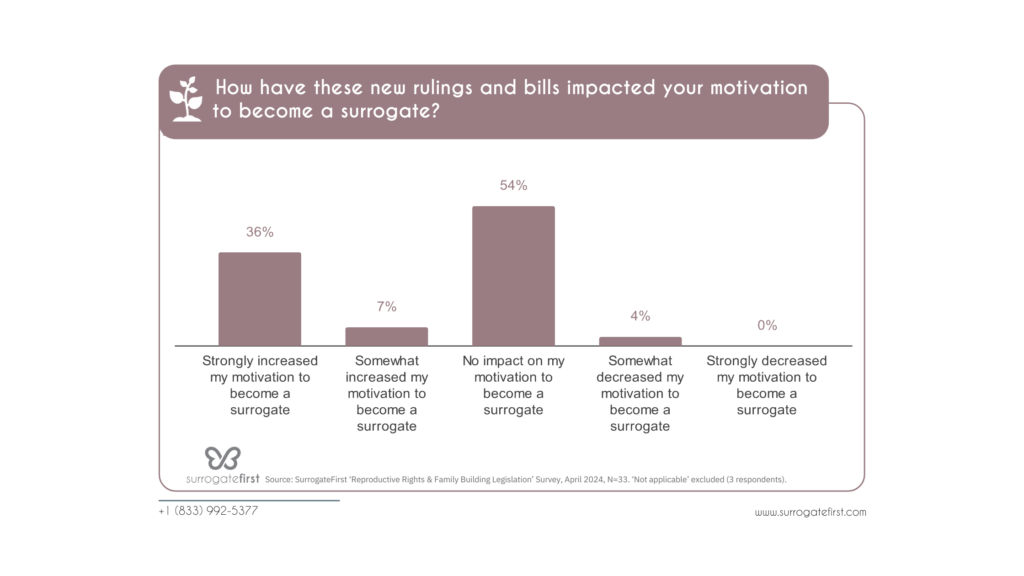
The majority (91%) have not encountered any challenges or barriers in the surrogacy process due to the new rulings and bills. This indicates a relatively smooth progression in their surrogacy journey despite the legislative landscape. Surrogates are concerned and worried but not particularly impacted. However, 9% of surrogates have faced challenges.
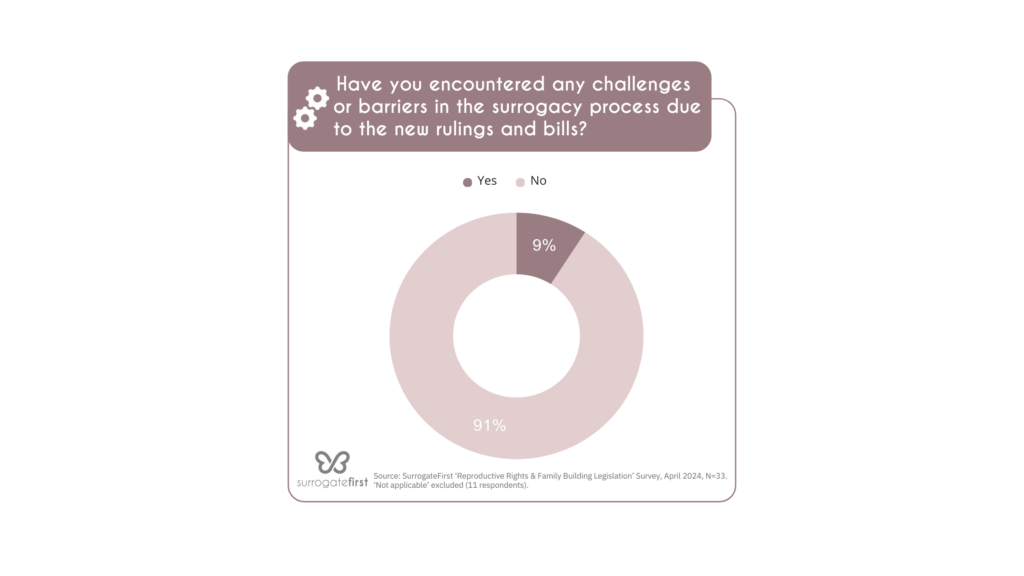
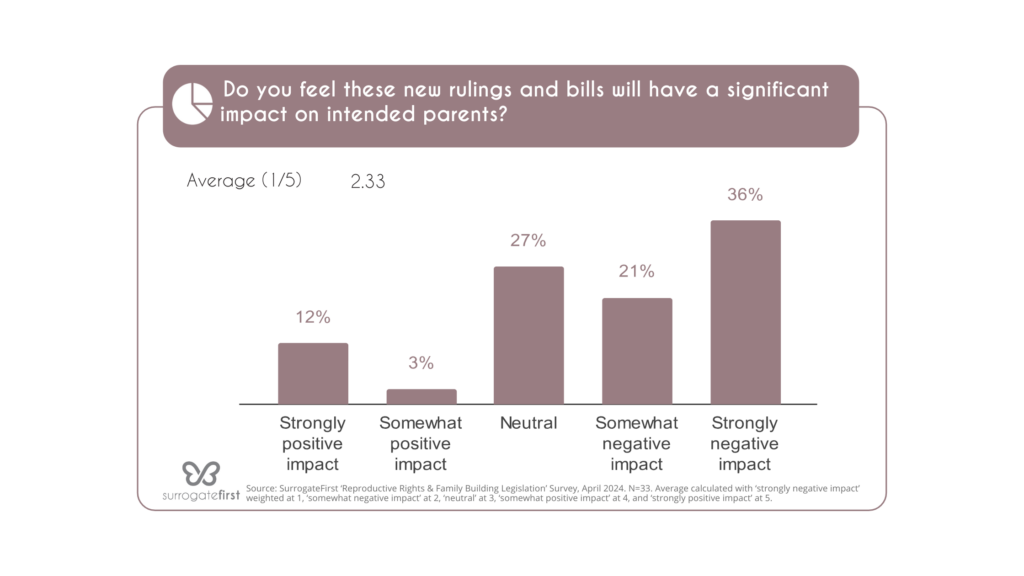
Surrogates agree that the new rulings and bills will have a significant negative impact on intended parents, especially same-sex couples.
The majority (57%) express negative sentiments, with 36% indicating a “Strongly negative impact” and 21% reporting a “Somewhat negative impact”. Additionally, a majority, 51%, feel same sex intended couples will be impacted the most.
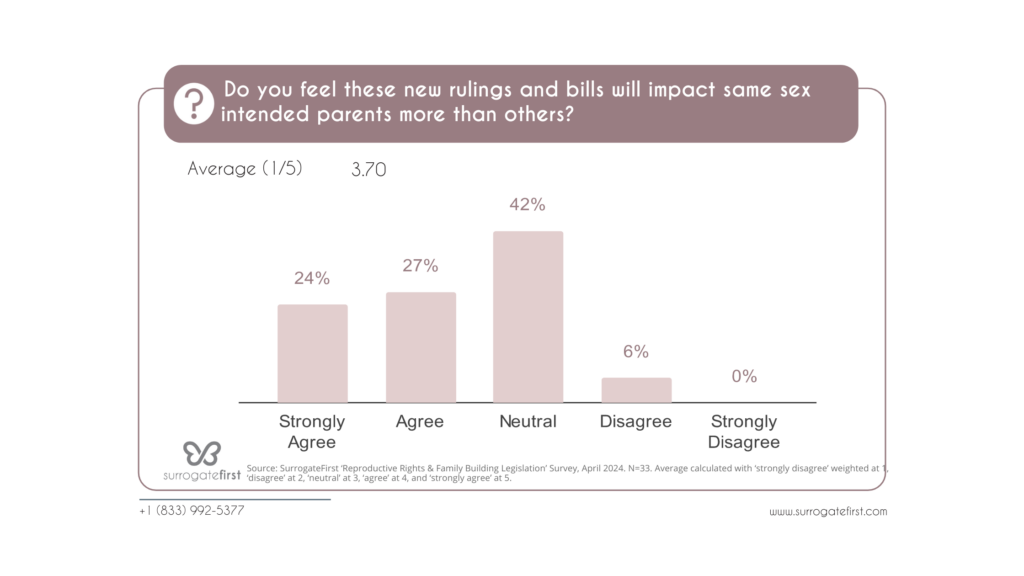

It’s not surprising that surrogates have not experienced challenges yet from the new ruling. I believe it’s because legislators, prosecutors, doctors, surrogates, and intended parents are still sifting through the impact of the bills. The bullwhip effect on surrogates will likely be felt more fully later this year.
Jeff Hu, CEO of SurrogateFirst
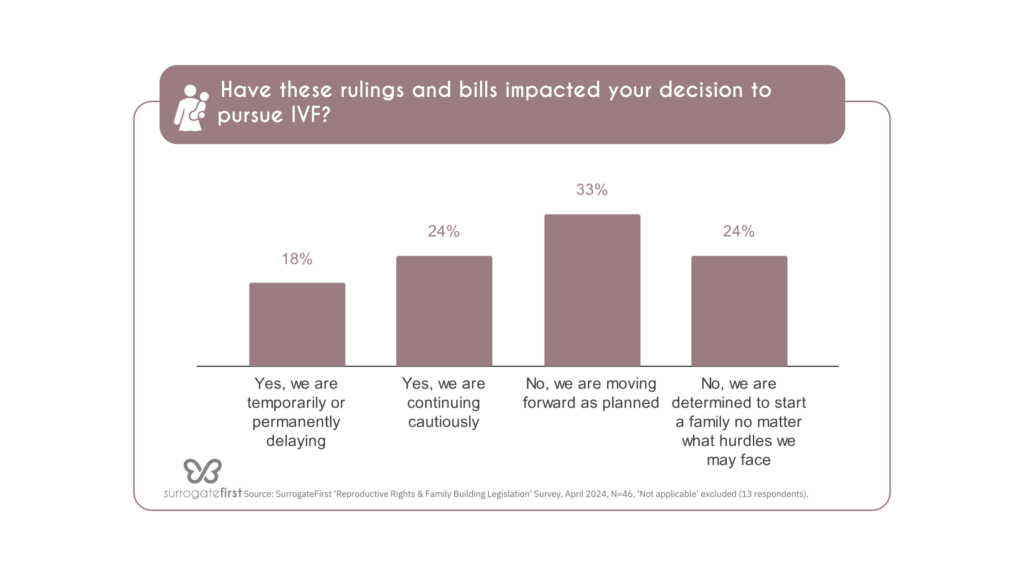
Recent legislation has influenced intended parent’s decisions regarding IVF treatment, with 18% opting to delay and 24% proceeding with caution. However, a majority, 57%, are either moving forward as planned or are determined to start a family despite potential hurdles.
Similarly, the new rulings and bills have influenced intended parents on their decision to pursue surrogacy to start a family, with 43% reporting some form of impact. 20% of intended parents report temporarily or permanently delaying their plans or say they are proceeding with caution.

30% of all intended parents we surveyed said they had encountered challenges or barriers in the IVF and/or surrogacy process due to the new rulings and bills.
Particularly, the new ruling brought additional financial burden (50%) and mental stress (67%) to intended parent’s pursuit of starting a family.
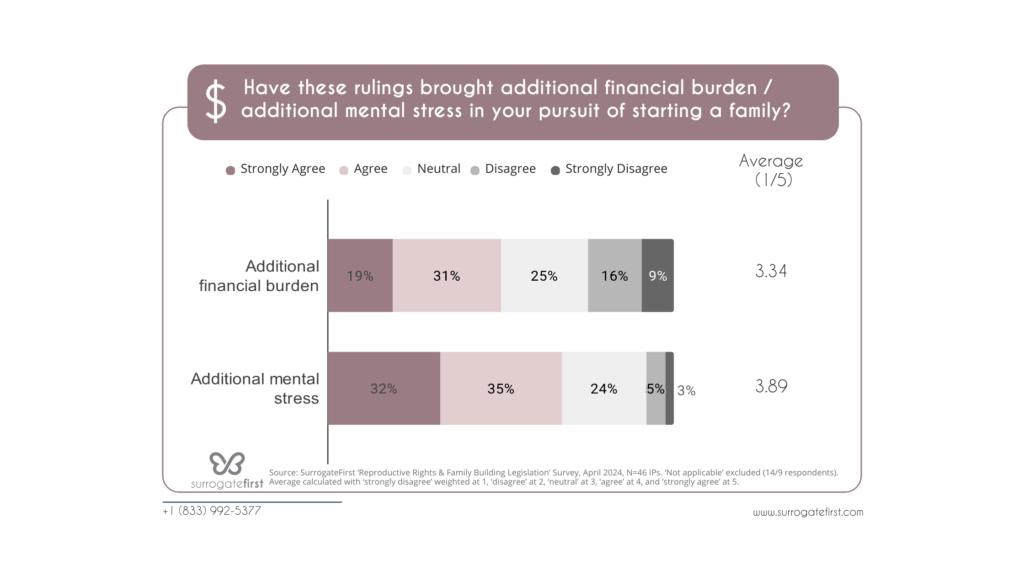
The majority of intended parents believe that new rulings and bills will disproportionately affect same- sex intended parents.
Specifically, 39% “Strongly Agree”, while 29% “Agree”. Only a small percentage disagree, with 10% “Disagree” and 7% “Strongly disagree”.
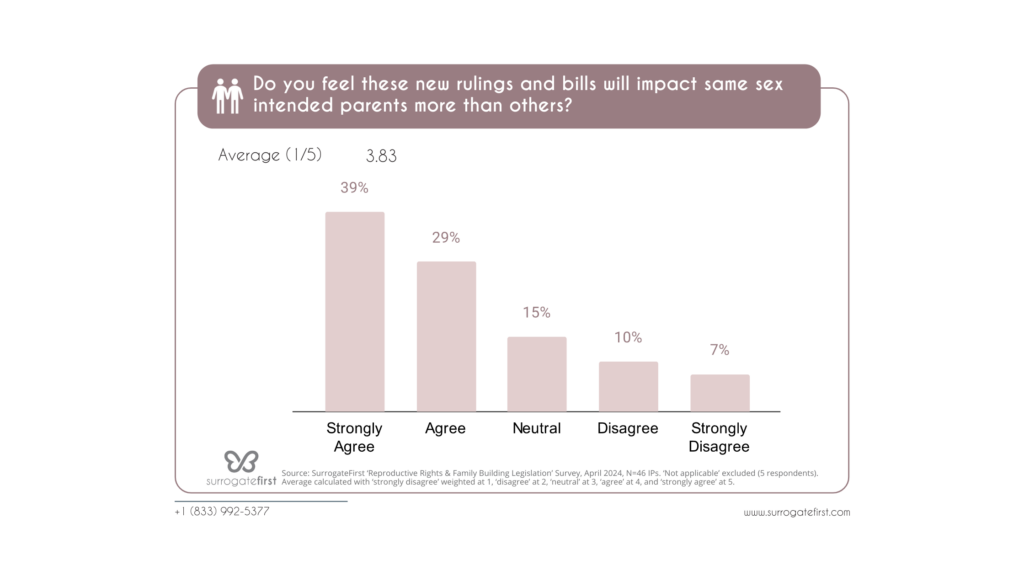
Anyone who has struggled to conceive understands how mentally draining the process can be. These rulings have only added more mental distress for intended parents looking to have a child.
- Jeff Hu, CEO of SurrogateFirst